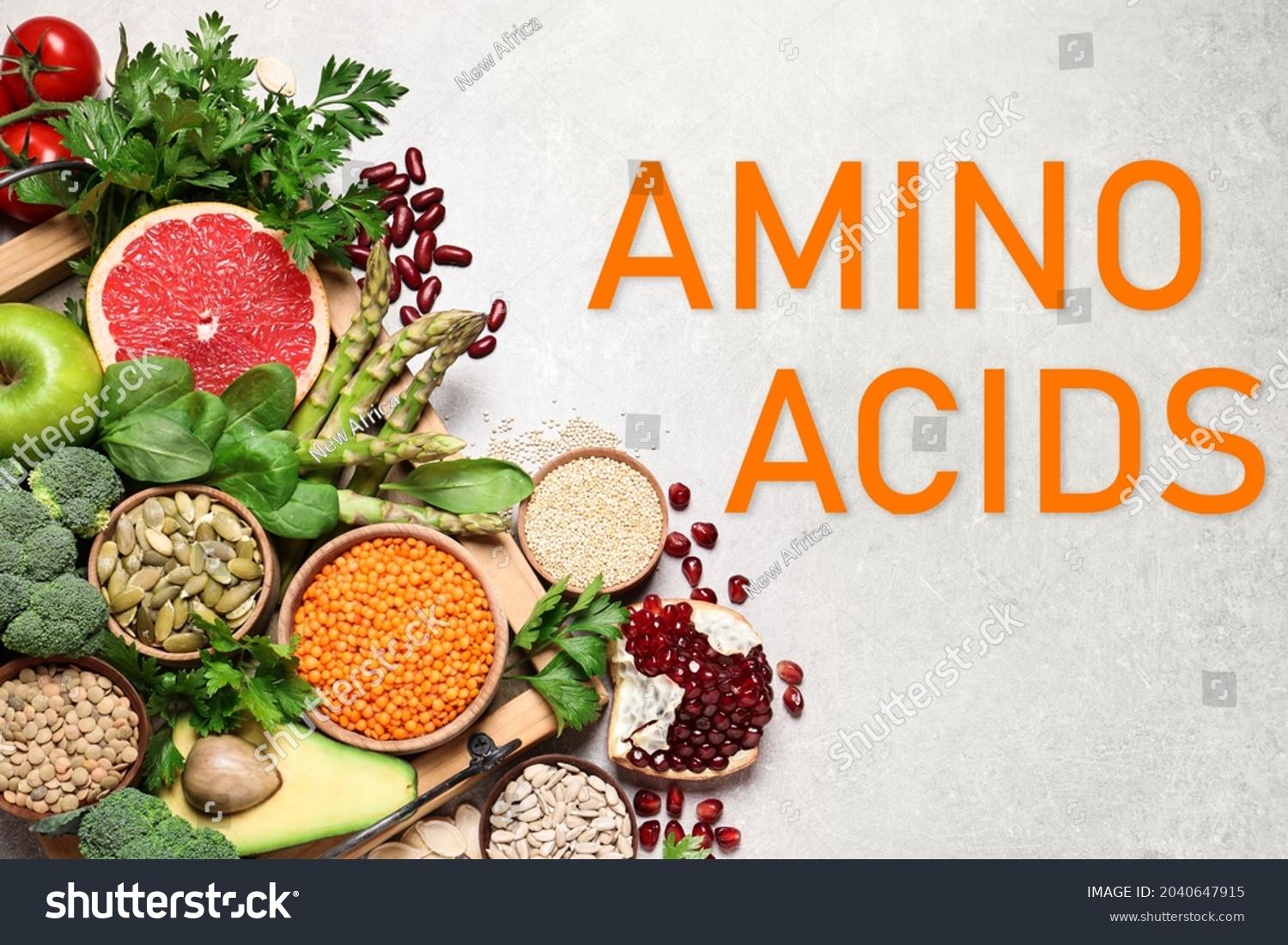Do you feel like your time in the gym is not yielding results? Are you considering taking a supplement to help boost your performance at sports or exercise but need help knowing where to start? Have no fear! Essential amino acids may be exactly what you need, and we’re here to explain why.
Amino acids are the building blocks of protein, which is an integral part of muscle growth and increased athletic ability. With an EAA supplement ranging from tablets to powders and many more available options, it can get confusing trying to navigate them all.
In this blog post, however, we will try to simplify it so that you can understand the basics right away: what they are, how they benefit exercisers and athletes alike—and much much more — all explained in detail!
What are Essential Amino Acids?
Essential amino acids are a group of fundamental building blocks your body can’t produce alone. They must come from the food we eat, and it’s essential to get enough of them!
These essential amino acids are involved in many of our body’s tasks, such as repairing tissue, making hormones, and helping us convert food into energy. Our bodies can’t store these essential amino acids like other nutrients – so it’s crucial to ensure you include them in your diet daily!
Your body needs a variety of amino acids to stay strong and healthy – 20 in total, to be precise! Of these 20, 9 are essential for proper functioning, so you need to make sure those 9 are part of your diet for optimal health, as your bodies can’t produce them on their own. These building blocks of life, as they’re often referred to, include:
- Histidine
- Isoleucine
- Leucine
- Lysine
- Methionine
- Phenylalanine
- Threonine
- Tryptophan
- And Valine
They form the foundation for healthy proteins inside the body and play essential roles in muscle tissue health and growth and in controlling metabolic processes like the digestion of food.
Benefits of EAAs
Essential amino acids, or EAAs, are essential nutrients that your bodies need to function correctly, providing an array of benefits to the body. Here are some of these benefits:
Helps with Mood
Serotonin, a molecule that functions as a neurotransmitter in your body, is produced from tryptophan. It is a crucial mood, sleep, and behavior modulator.
Tryptophan pills may help alleviate the signs of melancholy and improve mood, despite low serotonin levels associated with depressed mood and sleep issues.
Enhances Performance & Recovery
In a small 2017 study, resistance-trained athletes consumed branched-chain amino acids (BCAAs) in a 2:1:1 ratio at a dose of 0.039 grams per pound (0.087 grams per kilogram) of body weight.
Compared to those who took a placebo, those who received BCAAs demonstrated better performance, faster muscle recovery, and lessened muscular soreness.
Speeds Up Wound Healing & Surgery Recovery
Supplementing with amino acids may be beneficial for those recovering from surgery.
In a study of 243 patients with pelvic or long bone fractures, conditionally necessary amino acids were found to reduce the risk of death and medical complications two weeks after surgery compared to conventional feeding.
How to Eat Foods with Essential Amino Acids
Eating foods with essential amino acids is a great way to boost your health and nutrition. It may seem intimidating to choose the right foods, but plenty of delicious options will get you on the path to healthy eating. Start by looking for lean meats such as fish, chicken, and turkey. Beans and lentils are also excellent sources of essential amino acids.
For a vegan option, you can enjoy tofu or tempeh, which are also high in these important nutrients. Don’t forget dairy products like milk or cheese for added calcium and protein. Legumes, nuts, and seeds easily squeeze essential amino acids into your daily diet.
Several plant-based foods also contain all nine essential amino acids. These “complete” protein sources can be found in soy products such as edamame and tofu – adding much-needed variety to any meals created from vegan or vegetarian diets.
Eating a combination of these foods is an incredible way to ensure your body gets the essential amino acids it needs!
Essential Amino Acids & Exercise
Besides proper diet, exercise is an essential component of a healthy lifestyle, and consuming the proper nutrients to support its requirements helps you maximize the benefits of physical activity. One of these supporting nutrients is essential amino acids (EAAs).
Although you get these from different food options in your kitchen, what about the time during workouts? You need instant support and can’t take food to the gym. So, what is the solution?
EAA supplement! EAAs provide incredible advantages for athletes, from increased performance capabilities and muscle protein synthesis to improved muscle recovery times between workouts. Taking EAAs during your workout increases the amino acids your body uses for optimal performance, making them an ideal supplement for someone looking to maximize their time in the gym.
Compared to other dietary supplements and ingredient formulas, EAAs offer actual results with no fillers or added sugars. Don’t let yourself become fatigued early in your workout; make sure you keep yourself fueled with essential amino acid supplementation!
Takeaway
Essential amino acids are vital to keeping your body in top shape. While there are nine types of these essential amino acids, they all share some standard functions and benefits, such as aiding the body in muscle growth and building proteins.
To get them into your diet, try to incorporate foods that contain essential amino acids like legumes, nuts, and eggs into your meals. Suppose you’re looking for greater support during exercise or physical activity. An EAA supplement can offer significant benefits to ensure your muscles have all they need to perform optimally.
Understanding what essential amino acids are and how to get enough of them is a great way to get vital support for your health and well-being.
References
- Gorissen, Stefan H. M. “Protein Content and Amino Acid Composition of Commercially Available Plant-Based Protein Isolates.” Amino Acids, vol. 50, no. 12, Aug. 2018, https://doi.org/10.1007/s00726-018-2640-5.
- Jenkins, Trisha A., et al. “Influence of Tryptophan and Serotonin on Mood and Cognition with a Possible Role of the Gut-Brain Axis.” Nutrients, vol. 8, no. 1, Jan. 2016, p. 56. PubMed, https://doi.org/10.3390/nu8010056.
- Messina, Mark. “Soy and Health Update: Evaluation of the Clinical and Epidemiologic Literature.” Nutrients, vol. 8, no. 12, Nov. 2016, p. 754. PubMed Central, https://doi.org/10.3390/nu8120754.
- Miller, Aspen, et al. “Amino Acid Supplementation Is Associated with Reduced Mortality and Complications Following Acute Fracture Fixation: Results of a Prospective, Randomized Controlled Trial.” Current Developments in Nutrition, vol. 4, no. Suppl 2, May 2020, p. 1134. PubMed Central, https://doi.org/10.1093/cdn/nzaa055_019.
- Waldron, Mark, et al. “The Effects of Acute Branched-Chain Amino Acid Supplementation on Recovery from a Single Bout of Hypertrophy Exercise in Resistance-Trained Athletes.” Applied Physiology, Nutrition, and Metabolism = Physiologie Appliquee, Nutrition Et Metabolisme, vol. 42, no. 6, June 2017, pp. 630–36. PubMed, https://doi.org/10.1139/apnm-2016-0569.





